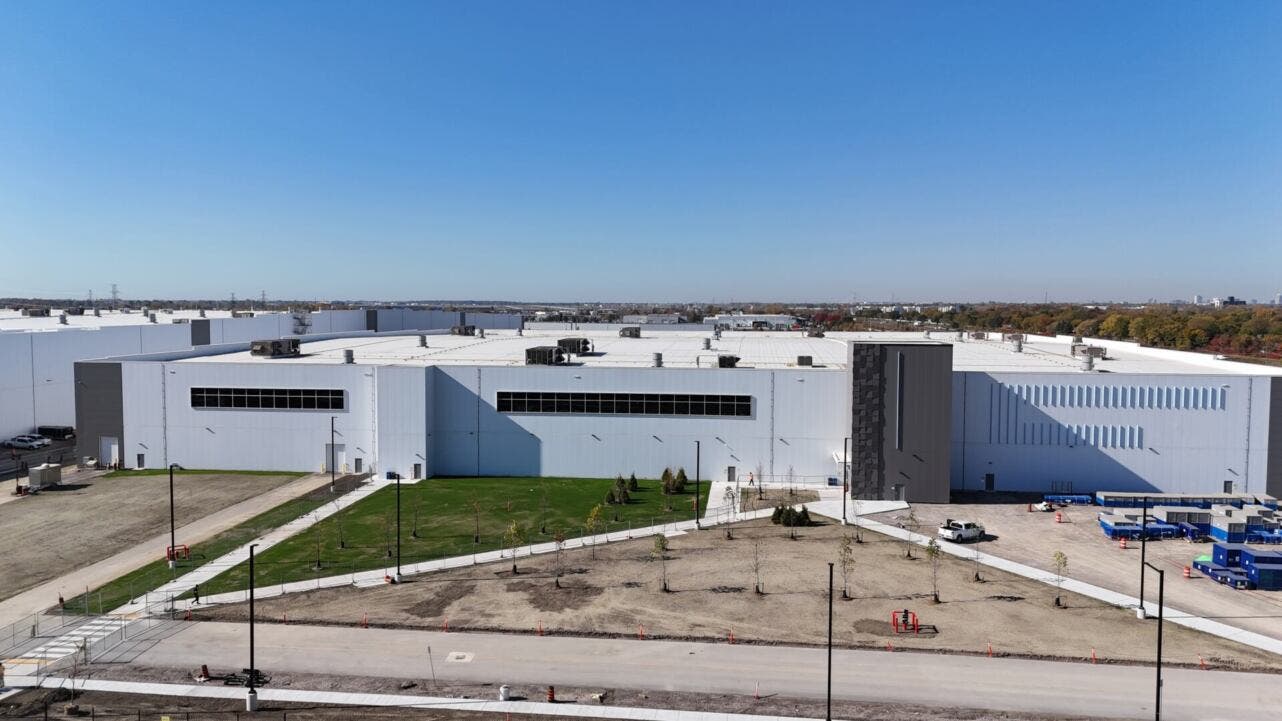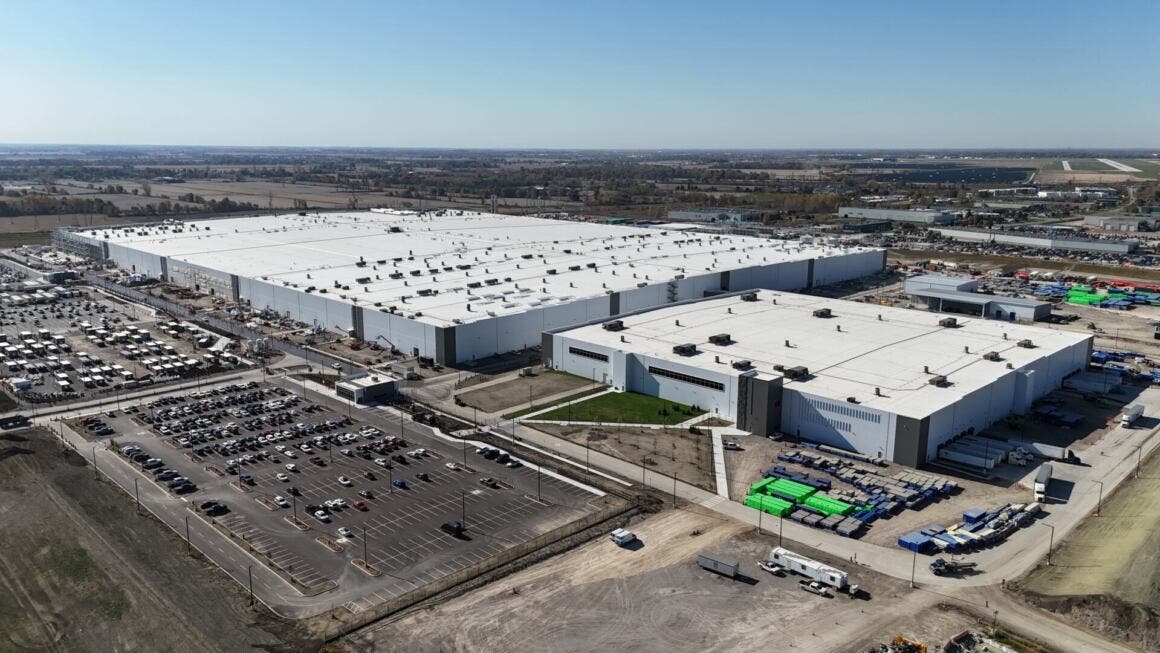A new sign of the global slowdown in electric vehicle demand has emerged from Canada. NextStar Energy, the joint venture between Stellantis and LG Energy Solutions, has decided to change the purpose of its Windsor, Ontario plant. Instead of producing batteries for electric vehicles, the factory will now manufacture energy storage systems for other applications, such as AI-powered data centers.
The confirmation came from CEO Daniel Lee in an interview with Automotive News Canada. He explained that the rapid growth of artificial intelligence in the coming years will increase the need for stable infrastructure and dedicated energy storage solutions.
Stellantis’ Ontario battery plant will no longer build EV batteries

The plant, announced in 2022 and temporarily halted in 2023 due to funding disagreements with the Canadian government, had only recently started producing battery modules. Originally, Stellantis aimed to make the facility fully operational by the end of 2025, as one of the cornerstones of its North American electrification strategy. The total investment exceeds $5 billion, supported by major public incentives at the municipal, provincial, and federal levels.
However, the decision to repurpose production reflects a clear trend in the automotive industry: demand for EVs is slowing down, forcing many automakers to rethink their plans. Stellantis, under CEO Antonio Filosa, has also frozen or delayed several projects.

Among the most significant are the electric Chrysler SUV, the fully electric Ram pickup, and the 900-horsepower Dodge Charger Daytona Banshee. Jeep has postponed the Recon launch to 2026, while the North American debut of the new electric Compass remains uncertain, even though it is already confirmed for Europe.
